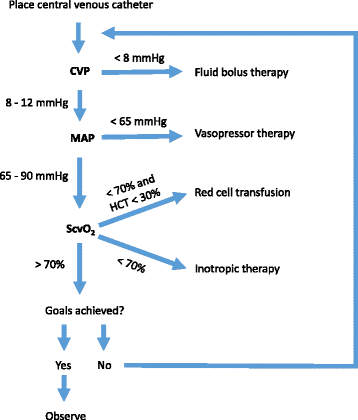International Surviving Sepsis Campaign has recommended Early Goal Directed Therapy for the management of severe sepsis and septic shock. Recently, three large multicenter studies – the ProCESS (Protocolized Care for Early Septic Shock), ARISE (Australasian Resuscitation In Sepsis Evaluation), and ProMISe (Protocolized Management In Sepsis) demonstrated no difference in the…
Tag: Anesthesia
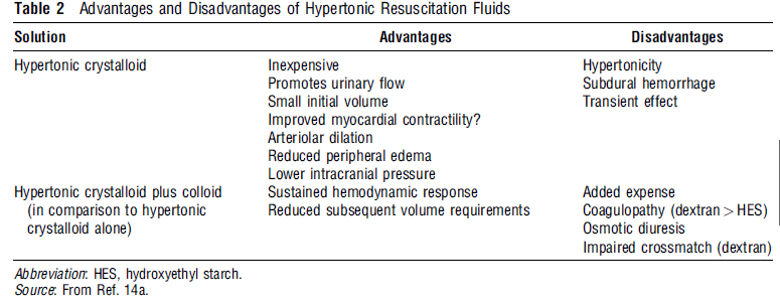
Head trauma fluid resuscitation
Peculiarities of cerebral circulation: 1. Brain and spinal cord is isolated from endothelium by BBB composed of continuous capillaries that limits movement of proteins and electrolytes 2. Fluid movement is primarily determined by osmolar gradient (in contrast to peripheral tissues – transcapillary gradient of large macromolecules) 3. Hence, administration of…

Burn Fluid Resuscitation
A) Clinical endpoints suggesting adequacy of burn fluid resuscitation: B) Pathophysiology of Burn:
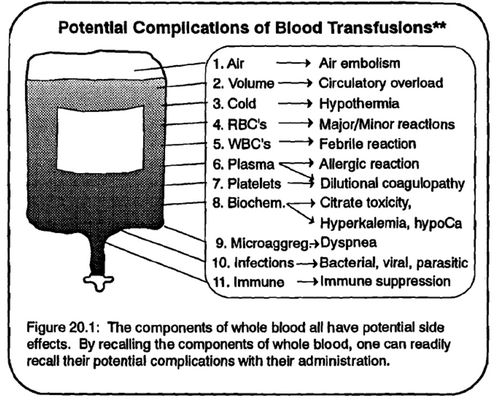
Perioperative Fluid Management
Author: Sulabh Kumar Shrestha, KISTMCTH A) RELEVANT ANATOMY AND PHYSIOLOGY Details of the body fluid compartments are described here Microvessels for fluid exchange: The Exchange Vessels – capillaries and most proximal part of the venules Sinusoidal capillaries (liver, spleen, bone marrow): freely permeable to all solutes Fenestrated capillaries (glands, glomeruli, GIT):…
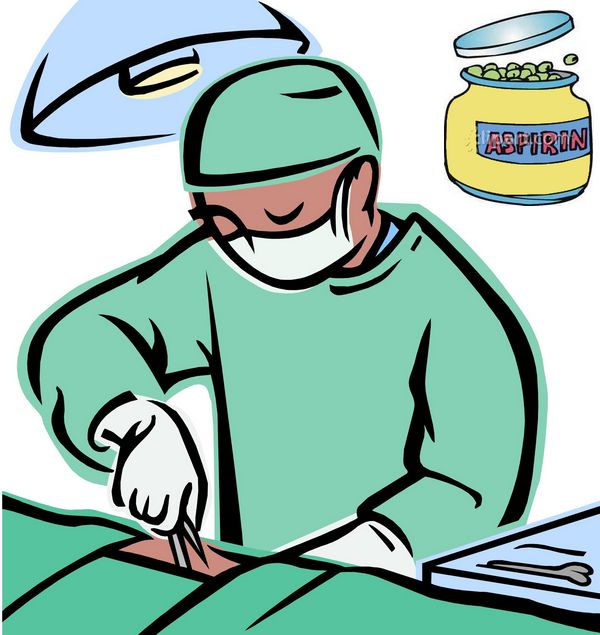
Aspirin and Clopidegrol : Perioperative Guidelines
The average lifespan of platelets is 7 to 10 days. Aspirin and Clopidegrol inhibits platelets for around 21 days. Hence, when these agents are stopped 7 days before the surgery, it allows 33% regeneration of platelets. Stents and coronary lesions act as unstable plaque until they are completely covered by…
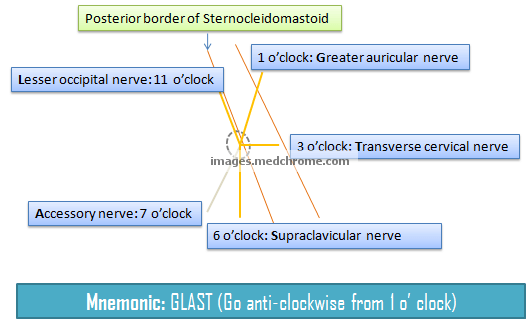
Superficial Cervical Plexus Block : Mnemonic
This is a visual mnemonic for the nerve arrangement of superficial cervical cutaneous branches of cervical plexus. This mnemonic was created only for the ease to remember and may not resemble exact anatomy. The site of injection for superior cervical plexus nerve block is the midpoint of posterior border of…
Basics of Fluid therapy
A. Anatomy and Physiology of Body Fluid Compartments: Remember the “60-40-20” rule of body water. 1. Total body water: 60% (50-70%) of Total Body Weight Greater in lean individuals because fat contains little water Greatest percentage in newborns, then decreases with age 2. Intracellular fluid (ICF): 40% of Total Body…
